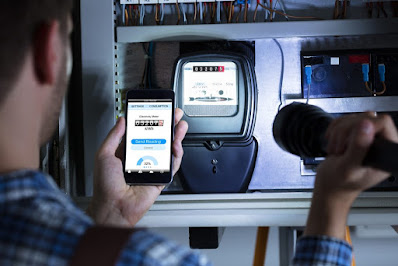The 3 main commercial hvac systems and how they work
Heating, Ventilation, and Cooling systems, otherwise known
as HVAC systems, are a vital part of any modern commercial building. The job of
an HVAC system is to keep temperatures comfortable (usually around 72 degrees),
humidity consistent (between 40-60%), and indoor air quality high.
There are many different types of commercial
HVAC systems; however, in general, these systems operate the same:
An AC unit lowers the temperature by passing air through
refrigerant or water-cooled systems, removing excess moisture from the air in
the process. Heating systems work exactly the opposite; air passes
through systems that heat the air using water, radiator coils, or gas.
Ventilation systems keep the air clean by circulating air
with fans and passing air through filtration systems.
The Different Types Of HVAC Systems
If you’ve considered replacing your buildings’ HVAC system,
you’ll know that there are an overwhelming number of combinations of different types
of systems. While this is true, all of these various types fall into three main
categories:
- The
Single Split System
This system is the most affordable of HVAC system. Are
commonly used in smaller commercial buildings and residences. This system allows
for individual control of each space. The system includes air conditioners that
pass air by refrigerant coils above a furnace or in an air handler. One
system circulates the air via ducts. The disadvantage of a single split
system is that for each space controlled separately, you’ll need an outdoor
unit.
- The
Multi- Mini Split System
Multi- mini split systems operate likewise to a single split
system, but is much more energy-efficient and has a much smaller outdoor
footprint. Multi-split systems allow you to connect up to 9 indoor units to one
outdoor unit. The system also includes heat sensors that detect temperature
changes, adjust as needed, and consume far less energy.
Furthermore, the heat pump in this system is designed to
move air in a way that works with the natural flow of warm air into cool areas,
saving money and energy. The disadvantage of these systems is that they require
more installation time,
- The
VRF (variable refrigerant flow) or VRV (variable refrigerant volume)
System
These systems are preferred for larger mixed-use type
buildings, such as office buildings or hotels. VRF systems can provide heating
and cooling to different areas at once, using warm air from areas of the
building and delivering it to where heat is required. This is especially
beneficial for buildings with lots of smaller rooms. Heat pump VRF systems
provide either heat or cooling and are best for larger open areas
Speak to a Leading Commercial HVAC Contractor in NJ Today
With over 30 years of experience as commercial HVAC services
providers and a fleet of commercial crews that operate throughout New Jersey,
Tri-Tech Energy is the ideal partner for your commercial HVAC
system installation, repair, and maintenance. We also offer 24-hour
emergency repair services and are experienced in developing and installing
customized heating and cooling solutions for commercial clients, as well as
manufacturing our own custom ductwork. For more information on our company or
services, please contact us today and speak to a commercial HVAC contractor or
visit our website at https://www.tritechenergy.com/
Original content is posted on https://www.tritechenergy.com/blog/commercial-hvac/3-main-commercial-hvac-systems-work/


Comments
Post a Comment